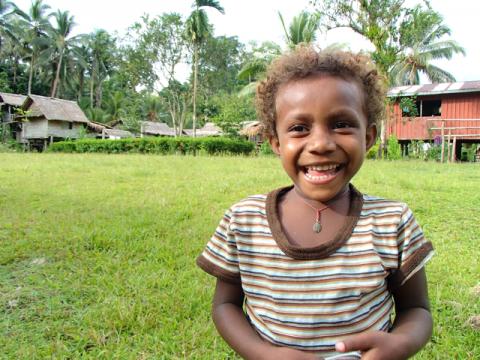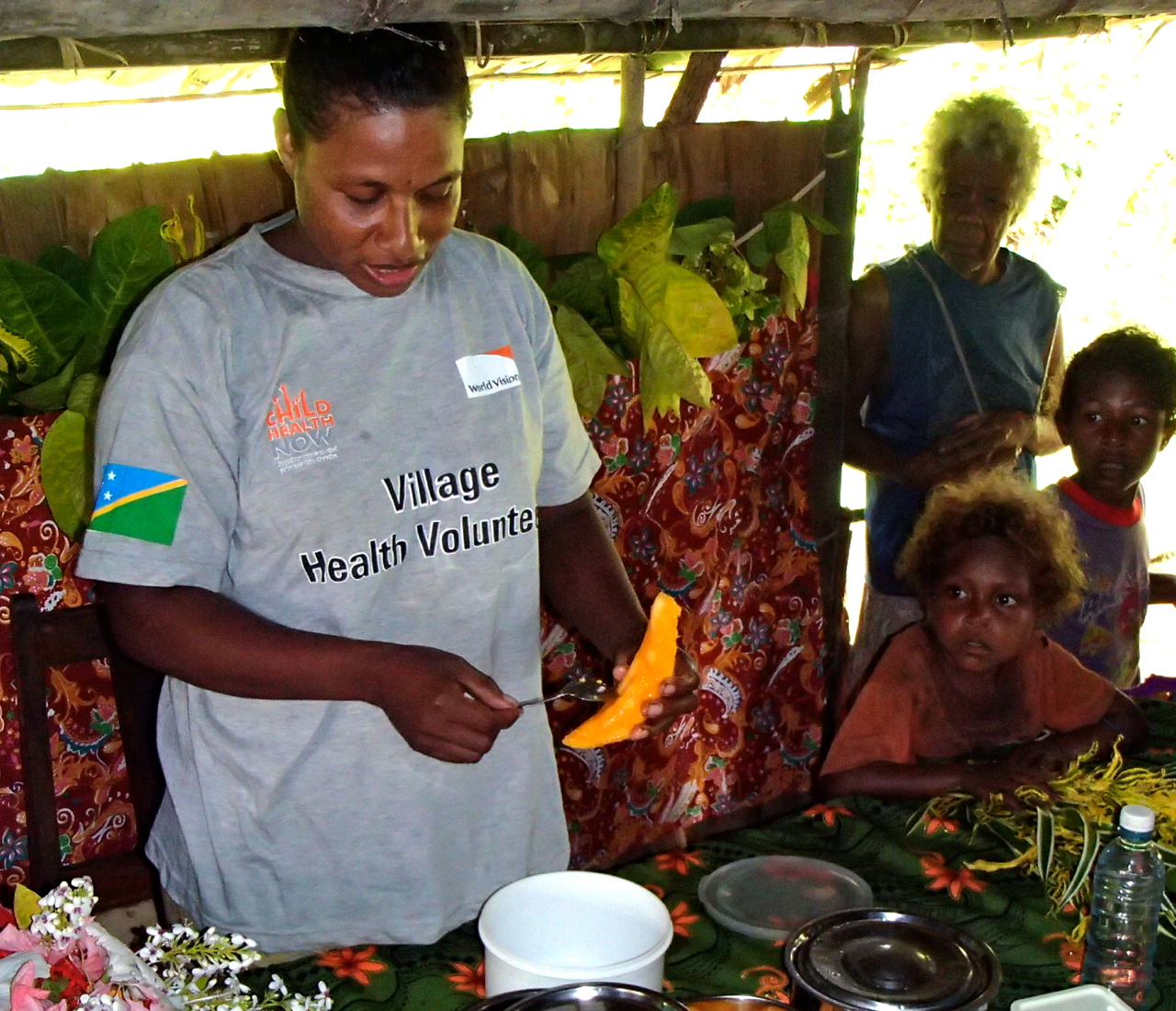Improving the Nutrition of Children in Solomon Islands

World Vision is helping 61 remote communities in Solomon Islands adopt improved health and nutritional practices and protect the health of women, children and babies through their Maternal Child Health and Nutrition projects (MCHN).
Through the MCHN projects mothers in target communities are being educated about maternal and child health issues and are being encouraged to make regular visits to clinics for antenatal checks, advice and growth monitoring.
In many communities most mothers are unaware of the importance proper nutrition has on their health and the health of their child and what a healthy balanced diet should include. As part of World Vision’s MCHN projects Village Health Volunteers are educating communities about health and nutrition with the goal of reducing the prevalence of stunted, underweighted and wasted children under the age of five years.
Village Health Volunteers have recently held healthy kaikai (food) demonstrations in communities where they explained the importance of having a mix of fruit, vegetable and protein in their diets. They also demonstrated how to safely prepare meals including the importance of hand washing and covering food to prevent transmission of disease from flies. During the talks Health Volunteers also covered topics such as exclusive breastfeeding, growth monitoring and the importance of adopting good sanitation and hygiene practices.
Priscilla Pageni, 28, Village Health Volunteer from Gupuna Village in Santa Ana spoke about how she is seeing some small changes happening already in her community since World Vision’s MCHN project started.
“Before World Vision came to our village and did the awareness talks, mothers did not know about the health issues and they never cared or were ignorant about their family’s health,” says Priscilla. “Now after attending the workshops conducted by World Vision, the mothers are regularly visiting the clinic for check-up and are now more careful with preparing the right kind of food for their family”.
Thanks to health awareness talks more men in target communities are also identifying themselves alongside their wives as equal players in the family health cycle. WVSI has MCHN projects in South Malaita, Makira, Temotu and Central Islands Area Programs.
Read more about Maternal and Child Health
